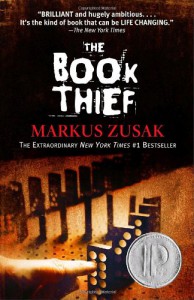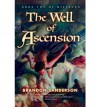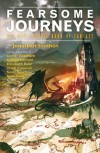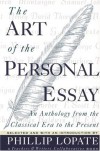Mining the Depths
I'll read almost anything and love what captures my imagination. Best of all is responding to books in the larger cultural sense, loving or loathsome. Literature should have a place in the wider world.
And I'm another GoodReads refugee.
The Book Thief
 I think I know why I avoided this so long. Because I really, really wanted to love it. But I was chary right from the start with the bestseller status, and am always suspicious of blockbuster books of the 'literary' genre. The New York Times blurb on the front cover of my copy says "BRILLIANT and hugely ambitious....It's the kind of book that can be LIFE CHANGING."Well, I do agree that it's hugely ambitious: in fact, that sums up every one of my major issues with this novel. If it's ambition wasn't so huge, it might have earned three or even four stars from me. I almost want to give it three starts now, because the story buried by the ambition does appeal to me, and much of it I like. In fifth grade, as I recall, I read every fictionalization of Holocaust Germany and Titanic that I could get my hands on. Apparently I had a morbid streak at the time. Even at the height of my fervor, I still hated the genre—after all, if your setting is WWII Germany, there's not going to be a happy ending. But I never felt the 'life changing-ness' of this novel. Though Liesel's situation is powerful on it's own, The Book Thief uses that as an excuse for the reader to care about Liesel. She's a good character on her own, but rather than let us get to know her, we're first just told, oh, so many bad things happen to her! Isn't it terrible?! Well, yes, it's terrible, but it was terrible for a lot of people in much the same way and far worse for others. So let's just get to the book stealing and actual character development.I wish it weren't so often awkward to read young women as written by men. Pratchett can pull it off, but then again, he can also pull off writing a book with Death as a protagonist.And his Death could so totally beat up The Book Thief's Death. Seriously.The narrator of this book, so-called "Death" nearly drove me mad. It took a long time to get used to him, and nearly 200 pages until the story was actually strong enough to keep me reading. But every time the narrative voice intruded into the real story of Liesel, I rolled my eyes. Death, in The Book Thief, has no particular insight into humanity—and I very nearly dropped the novel after the first few pages:I studied the blinding, white-snow sky who stood at the window of the moving train. I practically inhaled, it, but still, I wavered. I buckled—I became interested. In the girl. Curiosity got the better of me, and I resigned myself to stay as long as my schedule allowed, and I watched (7)So despite Death's oh-so-busy schedule—and since he can't take a vacation because there's no one to take over, we can assume he's the only one—he stays on the train with Liesel for 23 minutes. Why?Well, Death claims to not like watching those he leaves behind, but for some reason, that day he just does. Now this is practically literary short-hand for "I need a way to get the story started," and most of the time, it works for me. But this is DEATH. He's seen everyone die, and for quite possibly all of time. Yet at no time does this narrator-claiming-to-be-THE-Death ever seem to have noticed anyone else's story like he has Liesel's. Occasionally, and especially in the last 100 pages or so, he does become more focused on his duties, but that just made it worth. And he doesn't seem to have any particular insight into humanity.Death, in The Book Thief's universe, must have come down with something, because he was vomiting metaphor and description words all over the text. Every once in a long while something came up clean, but it really made the rest all the more gross."A warm scream filled her throat" (24). Warm is comfortable. Screams are hot. Which is in part while I liked Liesel's story better. The more closely Death observed her, the less he intruded and we had momentum and real emotion. Because with all the jumps made by the narrator, and all the distance, this novel has no discipline. In the back of this copy there's a list of questions and they mention some of the themes: abandonment, guilt. And they were there, in the beginning, in the end. But then Death got in the way, and distracted from the real story. How's that for a metaphor?***Okay, so I upped a star. Because even in my own rating system, it was better than just 'OK', even if I didn't exactly like it. Even on my own I probably would have finished it despite my aggravation, and Zusak is much more skilled and disciplined a writer than many (despite's Death's lack of the same), so props for that.
I think I know why I avoided this so long. Because I really, really wanted to love it. But I was chary right from the start with the bestseller status, and am always suspicious of blockbuster books of the 'literary' genre. The New York Times blurb on the front cover of my copy says "BRILLIANT and hugely ambitious....It's the kind of book that can be LIFE CHANGING."Well, I do agree that it's hugely ambitious: in fact, that sums up every one of my major issues with this novel. If it's ambition wasn't so huge, it might have earned three or even four stars from me. I almost want to give it three starts now, because the story buried by the ambition does appeal to me, and much of it I like. In fifth grade, as I recall, I read every fictionalization of Holocaust Germany and Titanic that I could get my hands on. Apparently I had a morbid streak at the time. Even at the height of my fervor, I still hated the genre—after all, if your setting is WWII Germany, there's not going to be a happy ending. But I never felt the 'life changing-ness' of this novel. Though Liesel's situation is powerful on it's own, The Book Thief uses that as an excuse for the reader to care about Liesel. She's a good character on her own, but rather than let us get to know her, we're first just told, oh, so many bad things happen to her! Isn't it terrible?! Well, yes, it's terrible, but it was terrible for a lot of people in much the same way and far worse for others. So let's just get to the book stealing and actual character development.I wish it weren't so often awkward to read young women as written by men. Pratchett can pull it off, but then again, he can also pull off writing a book with Death as a protagonist.And his Death could so totally beat up The Book Thief's Death. Seriously.The narrator of this book, so-called "Death" nearly drove me mad. It took a long time to get used to him, and nearly 200 pages until the story was actually strong enough to keep me reading. But every time the narrative voice intruded into the real story of Liesel, I rolled my eyes. Death, in The Book Thief, has no particular insight into humanity—and I very nearly dropped the novel after the first few pages:I studied the blinding, white-snow sky who stood at the window of the moving train. I practically inhaled, it, but still, I wavered. I buckled—I became interested. In the girl. Curiosity got the better of me, and I resigned myself to stay as long as my schedule allowed, and I watched (7)So despite Death's oh-so-busy schedule—and since he can't take a vacation because there's no one to take over, we can assume he's the only one—he stays on the train with Liesel for 23 minutes. Why?Well, Death claims to not like watching those he leaves behind, but for some reason, that day he just does. Now this is practically literary short-hand for "I need a way to get the story started," and most of the time, it works for me. But this is DEATH. He's seen everyone die, and for quite possibly all of time. Yet at no time does this narrator-claiming-to-be-THE-Death ever seem to have noticed anyone else's story like he has Liesel's. Occasionally, and especially in the last 100 pages or so, he does become more focused on his duties, but that just made it worth. And he doesn't seem to have any particular insight into humanity.Death, in The Book Thief's universe, must have come down with something, because he was vomiting metaphor and description words all over the text. Every once in a long while something came up clean, but it really made the rest all the more gross."A warm scream filled her throat" (24). Warm is comfortable. Screams are hot. Which is in part while I liked Liesel's story better. The more closely Death observed her, the less he intruded and we had momentum and real emotion. Because with all the jumps made by the narrator, and all the distance, this novel has no discipline. In the back of this copy there's a list of questions and they mention some of the themes: abandonment, guilt. And they were there, in the beginning, in the end. But then Death got in the way, and distracted from the real story. How's that for a metaphor?***Okay, so I upped a star. Because even in my own rating system, it was better than just 'OK', even if I didn't exactly like it. Even on my own I probably would have finished it despite my aggravation, and Zusak is much more skilled and disciplined a writer than many (despite's Death's lack of the same), so props for that.
 1
1
Currently reading
The Well of Ascension
Progress:
325/781 pages
Steelheart
Progress:
26 %
Fearsome Journeys: The New Solaris Book of Fantasy
Progress:
57/395 pages
Dracula
The Guermantes Way
The Art of the Personal Essay: An Anthology from the Classical Era to the Present
Mad Ship
Pitch Like A Girl: How A Woman Can Be Herself And Still Succeed
A History of Pi
English Creek












